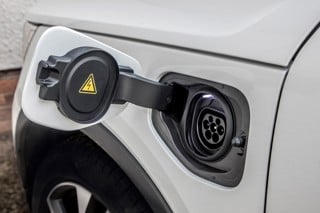By Mike Coulton, fleet product and policy manager at Volkswagen Financial Services Fleet
There are substantial financial benefits for both employers and employees in the introduction of an electric company car scheme, particularly if offered via salary sacrifice.
The benefit-in-kind (BIK) tax for electric vehicles (EVs) is currently just 2%, which is a powerful incentive for employees to switch to electric in comparison to petrol and diesel cars where you could be looking at a BIK rate of over 30%.
Offering employees EVs through a salary sacrifice scheme could also offer significant Class 1A National Insurance (NI) savings.
Businesses could typically save around £80 to £100 per employee, per month on each zero-emission vehicle on the scheme, while the employee also benefits from lower NI contributions, making it an attractive option to both businesses and workers.
In addition to encouraging zero emission vehicles, by using a salary sacrifice scheme businesses can offset their carbon emissions.
Sustainability initiatives
Sustainability is increasingly at the forefront for many businesses.
In the wake of COP26, many companies will be looking to devise a clear and deliverable plan on moving to a low-carbon future in line with the UK's 2050 net-zero target.
Company car fleets and even the ‘grey fleet’ – where employees use their personal car to commute or for business purposes – can be a huge contributor to emissions.
Luckily for businesses, they’re also one of the easiest things to change to reduce emission levels.
Offering EVs or ULEVs (ultra-low-emission vehicles) through salary sacrifice to employees who may not qualify for a company car but who are creating emissions by driving to the workplace, can be a quick win for businesses looking to tackle their carbon footprint.
Talent attraction
However, it's not just about sustainability credentials; these financial and sustainability benefits have a knock-on effect when attracting and retaining talent.
Not only can employees save money when it comes to tax and running costs with an EV, which is an appealing option in itself, but the chance to lower their emissions is a benefit.
People are becoming more aware of their impact on the environment as individuals, and an electric vehicle is one way for them to tackle this.
As a potential employer, if you can offer this desirable package benefit to candidates, it can be a way to attract (and retain) top talent.
Staff advantage
As well as the tax benefits, employees will also find the running costs are significantly less, particularly if they charge the car at home overnight or at work if the business installs EV charging points – another great way to encourage ULEV adoption.
Some of the barriers with EVs are perceived cost, range and charging infrastructure.
However, many of these can be easily addressed, with ranges in excess of 300 miles in models such as the Volkswagen ID.4 or the Hyundai Ioniq 5.
The shift to EV is a crucial target for the UK, and salary sacrifice and fleet adoption of electric vehicles is a fundamental way to achieve this target.





















Login to comment
Comments
No comments have been made yet.